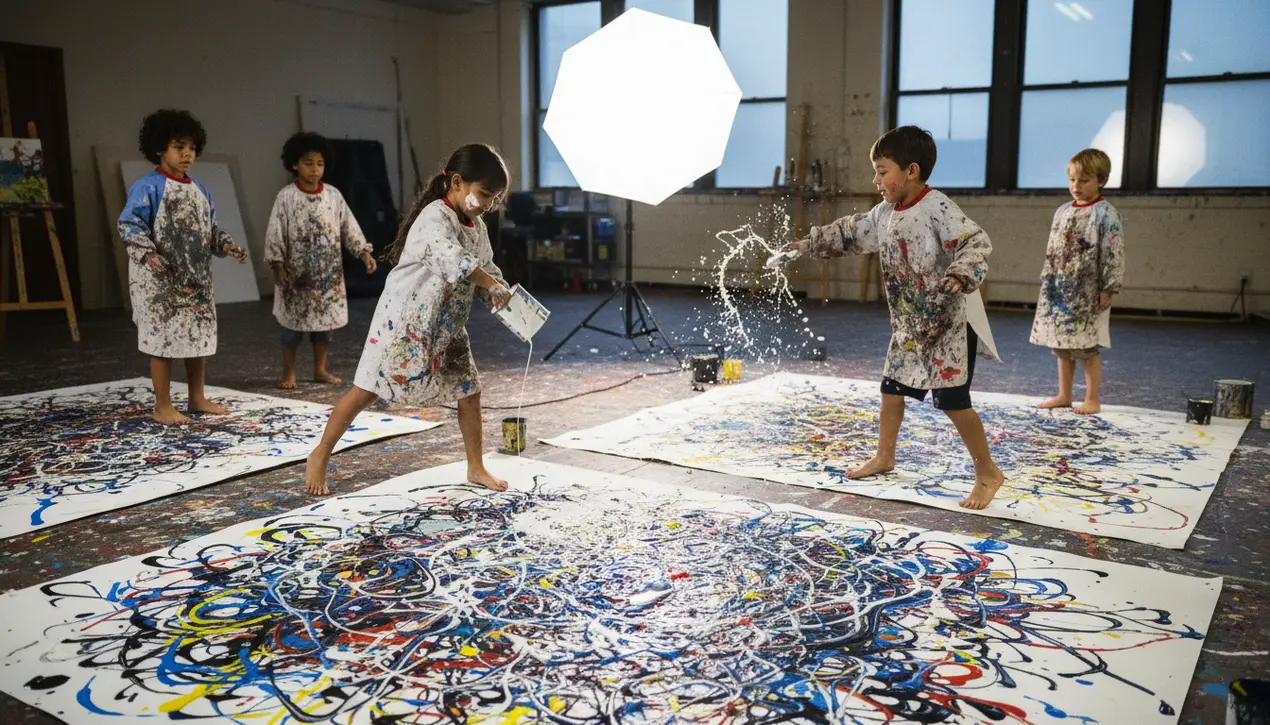
Entertainmenttheatre & artsArt Exhibitions
Study: Children Emulate Jackson Pollock's Painting Style
SO
Sophia King
2 days ago7 min read2 comments
In a fascinating twist that challenges our assumptions about artistic development, a new study has revealed that children possess a remarkable, almost intuitive ability to emulate the chaotic genius of Jackson Pollock's drip-painting style, often outperforming their adult counterparts. This isn't about simple finger-painting; it's about a fundamental, unlearned understanding of fluid dynamics and abstract composition that seems to be hardwired into the youthful mind before the constraints of convention and self-criticism take hold.Pollock's revolutionary technique, which involved flinging, pouring, and dripping industrial paint onto vast canvases laid on the floor, was once dismissed as mere chaos but is now recognized as a complex interplay of physics—the viscosity of the paint, the motion of the artist's body, and the laws of gravity all conspiring to create those iconic, layered webs of color. Where adults approach the canvas with intention, often overthinking each gesture in an attempt to consciously replicate Pollock's 'action painting,' children dive in with a fearless, process-oriented abandon.They aren't trying to *make* a Pollock; they are, in a very real sense, *being* Pollock, their movements natural and unforced, their focus on the joy of the paint's movement rather than the final product. This research, echoing the principles of pioneers like Jean Piaget and Lev Vygotsky who explored cognitive development through creative play, suggests that the kind of non-representational, gestural abstraction that defined mid-century modernism might be a more native form of expression than the figurative drawing we so often teach.It's as if the complex algorithms that generate stunning digital art in tools like Midjourney or the intuitive flow states enabled by Figma plugins have a biological precursor in the unbridled creativity of a child. The implications ripple outward, challenging art education paradigms that prioritize technical skill and realistic representation over experimental, somatic engagement with materials. What if our most advanced AI art models, trained on millions of images, are in some way mirroring this early childhood phase of pure, un-filtered pattern generation? The study forces us to reconsider the very nature of artistry—is it a skill painstakingly acquired, or a state of being we gradually unlearn? By looking at Pollock through the paint-splattered hands of a child, we aren't just seeing a cute imitation; we are witnessing a profound connection to the raw, physical essence of creation itself, a reminder that the most advanced forms of expression often begin with the most fundamental human impulses.
#children
#art
#study
#Jackson Pollock
#painting
#creativity
#featured
Stay Informed. Act Smarter.
Get weekly highlights, major headlines, and expert insights — then put your knowledge to work in our live prediction markets.
Comments
Loading comments...
© 2025 Outpoll Service LTD. All rights reserved.